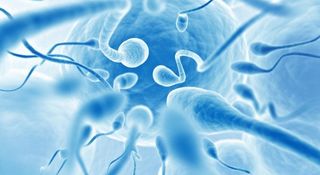
Fertility Issues
Around one in seven couples may have difficulty conceiving. This is approximately 3.5 million people in the UK.
Some couples get pregnant quickly, but for others it can take longer. It's a good idea to see your GP if you haven't conceived after one year of trying.
For couples who've been trying to conceive for more than three years without success, the likelihood of getting pregnant naturally within the next year is 25% or less. The chances of becoming pregnant are unfortunately even lower in older women (aged 36 and over).
Infertility is only usually diagnosed when a couple haven't managed to conceive after one year of trying.
There are two main types of infertility:
There are many potential causes of fertility issues, they can affect men or women. However, in a quarter of cases it isn't possible to identify the cause. In women, common causes of infertility include:
Risk factors
There are numerous factors that can influence fertility in both men and women. These include:
Nutritional Therapy can help with: controlling Oestrogen:Progesterone balance, controlling Androgen balance, Heavy metal (not the 'Rock and Roll' kind) detoxification, Antioxidant support, Stress reduction, Blood sugar control, reducing exposure to pesticides and other toxins, as well as testing for any genetic predisposition.
If you believe that you might have Fertility Issues then you should seek medical advice. There are also many ways CANN may be able to assist in reducing your risk factors and increasing your chances of successful conception. From simple dietary and lifestyle changes to supplements.
Some couples get pregnant quickly, but for others it can take longer. It's a good idea to see your GP if you haven't conceived after one year of trying.
For couples who've been trying to conceive for more than three years without success, the likelihood of getting pregnant naturally within the next year is 25% or less. The chances of becoming pregnant are unfortunately even lower in older women (aged 36 and over).
Infertility is only usually diagnosed when a couple haven't managed to conceive after one year of trying.
There are two main types of infertility:
- primary infertility – where someone who's never conceived a child in the past has difficulty conceiving
- secondary infertility – where someone has had one or more pregnancies in the past, but is having difficulty conceiving again
There are many potential causes of fertility issues, they can affect men or women. However, in a quarter of cases it isn't possible to identify the cause. In women, common causes of infertility include:
- lack of regular ovulation
- damaged or blocked fallopian tubes
- endometriosis – where tissue that behaves like the lining of the womb (the endometrium) is found outside the womb
Risk factors
There are numerous factors that can influence fertility in both men and women. These include:
- age – female fertility and, to a lesser extent, male fertility decline with age; in women, the biggest decrease in fertility begins during the mid-30s
- weight – being overweight or obese (a BMI of 30 or over) reduces fertility; in women, being overweight or severely underweight can affect ovulation
- sexually transmitted infections (STIs) – several STIs, including chlamydia, can affect fertility
- sex hormones - too much or too little oestrogen can disrupt fertility, particularly excess can predispose endometriosis; excess androgens (e.g. testosterone) can cause ovarian dysfunction (e.g. Polycystic Ovarian Sydnrome)
- stress – can affect your relationship with your partner and cause a loss of libido; in severe cases, stress may also affect ovulation and sperm production
- alcohol – for men, drinking too much alcohol can affect the quality of sperm; for women, the safest approach is to abstain to minimise risks to baby (men and women should drink no more than 14 units of alcohol a week, which should be spread evenly over three or more days)
- smoking – can affect fertility in both sexes: smoking (including passive smoking) affects a woman's chance of conceiving, while in men there's an association between smoking and reduced semen quality
- environmental factors – exposure to certain pesticides, solvents and metals has been shown to affect fertility, particularly in me.
Nutritional Therapy can help with: controlling Oestrogen:Progesterone balance, controlling Androgen balance, Heavy metal (not the 'Rock and Roll' kind) detoxification, Antioxidant support, Stress reduction, Blood sugar control, reducing exposure to pesticides and other toxins, as well as testing for any genetic predisposition.
If you believe that you might have Fertility Issues then you should seek medical advice. There are also many ways CANN may be able to assist in reducing your risk factors and increasing your chances of successful conception. From simple dietary and lifestyle changes to supplements.
